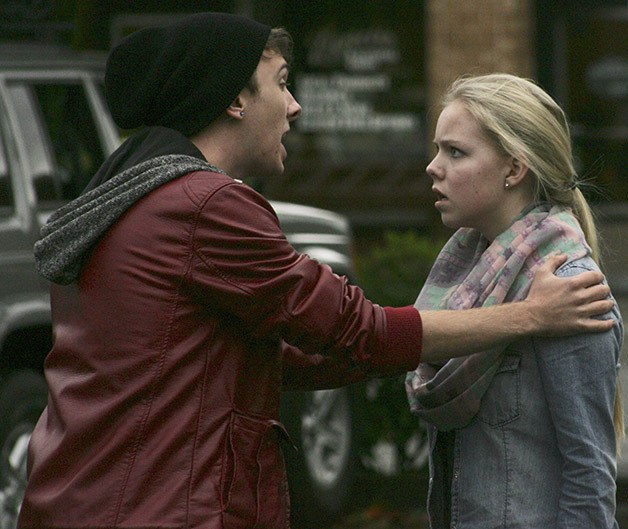LINCCK Civility – Compassion – Kindness, helps people care for each other so that domestic violence will have no place in our community. We must care for the victims, and even those that victimize. Einstein’s words “The world is a dangerous place, not from those who do evil, but from those who look on and do nothing” should be the guiding light for bystanders ending domestic violence.
October is Domestic Violence Awareness Month. LINCCK hopes the entire community will be good bystanders, since domestic violence affects all social and economic levels. Domestic violence is a pattern of controlling behavior over an intimate partner using physical, sexual, emotional, psychological or financial abuse. Some abuses cause physical injury, some don’t. Some are criminal, some aren’t. All domestic violence creates psychological harm. Research suggests sustained verbal abuse could have more long-term implications than physical abuse.
Domestic violence is a learned pattern of behavior that may include breaking of objects, hurting of pets, isolating the victim from family or friends, and threatening violence or suicide. Children are hurt intentionally or coincidentally. They are always hurt. Since that is the world they know, even though hated, it may be mirrored when growing into adulthood.
For awareness, focus on purple around town. The Purple Light Nights campaign, started by an Enumclaw resident seven years ago, reminds us of those who lost their lives to domestic violence, supports the survivors, and brings hope to those still being abused. This campaign has spread to 28 other states, three Canadian provinces and the Territory of Guam.
Dealing with victim issues, while essential, is partly treating symptoms. To avoid future victims, it is critical to address issues of the controlling partner. First, they must be accountable to the justice system. But if you are a true friend of the controlling partner, you’d stop the abusive behavior by critically speaking out and encouraging correction. Offering appropriate resources or guidance to get help might make the difference. The controlling partner needs to learn that they are not held in high esteem, but are actually a ‘smaller’ or ‘lesser’ person for acting that way.
Are you aware of two individuals in a relationship where one puts down the other with criticism, name-calling, or humiliation? Is one constantly checking up on the other, asking for whereabouts, continually texting or calling? Realize abuse generally escalates. If hurtful controlling actions are caught early, they can be stopped before seriously damaging the victim.
You might notice someone’s unexplained absences or bruises, lack of concentration, depression or anxiety. Are you going to ask about this? If you observe domestic violence warning signs, tell the person you notice a problem and that you’re concerned. If the person wants to talk, ask what help would be most useful. Victims have to be ready to want help. You can’t ‘rescue’ a victim that doesn’t want rescue.
The Domestic Violence Leave Law allows a victim (or someone helping a child, intimate partner, parent or grandparent who’s a victim) of domestic violence, sexual assault or stalking to take time off from work, no matter the size of the company, without impact to their employment status.
You can help victims by just being there. Offer a ride, your phone, groceries or babysitting – just listening and believing can make a difference. Don’t criticize or be judgmental, even if victims choose not to leave their controlling partner. Show you care, and are concerned for the victim’s physical and emotional safety. They are not to blame themselves, and are not alone.
For both the victim and controlling partner, encourage them to stay connected to friends and family and to participate in activities apart from each other. When you come across domestic violence, ask questions in private, and respect confidentiality. Call 911 if you hear screaming or violence from a neighboring residence, or know if someone is in immediate danger. Protect yourself.
Domestic violence involves police, courts, jails, behavioral training, counseling, medical assistance, and the loss of productive people. Costs are staggering. The impact to our community’s health is mind numbing. Educate yourself on domestic violence, and keep your senses alert. Think of our community as a complete entity. If one part suffers, we all suffer.
As bystanders we must not remain neutral, but take action. Only then will domestic violence have no place in our community.



